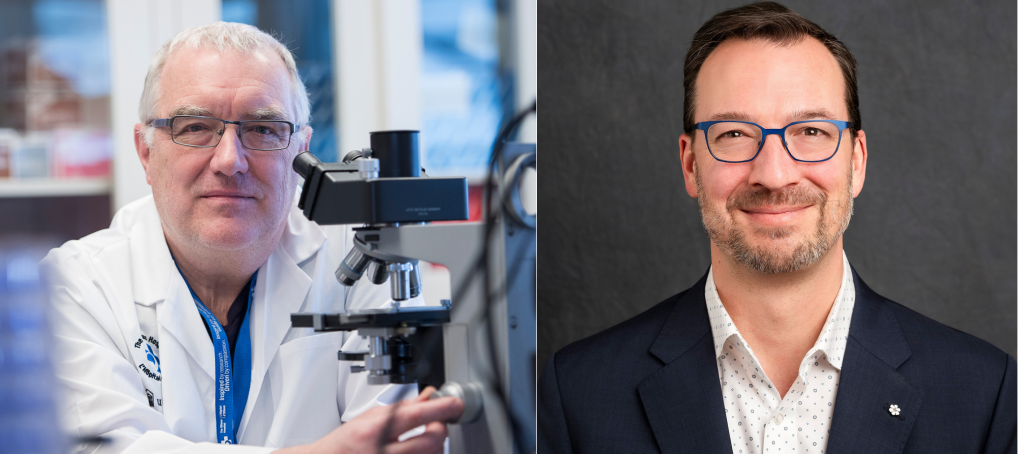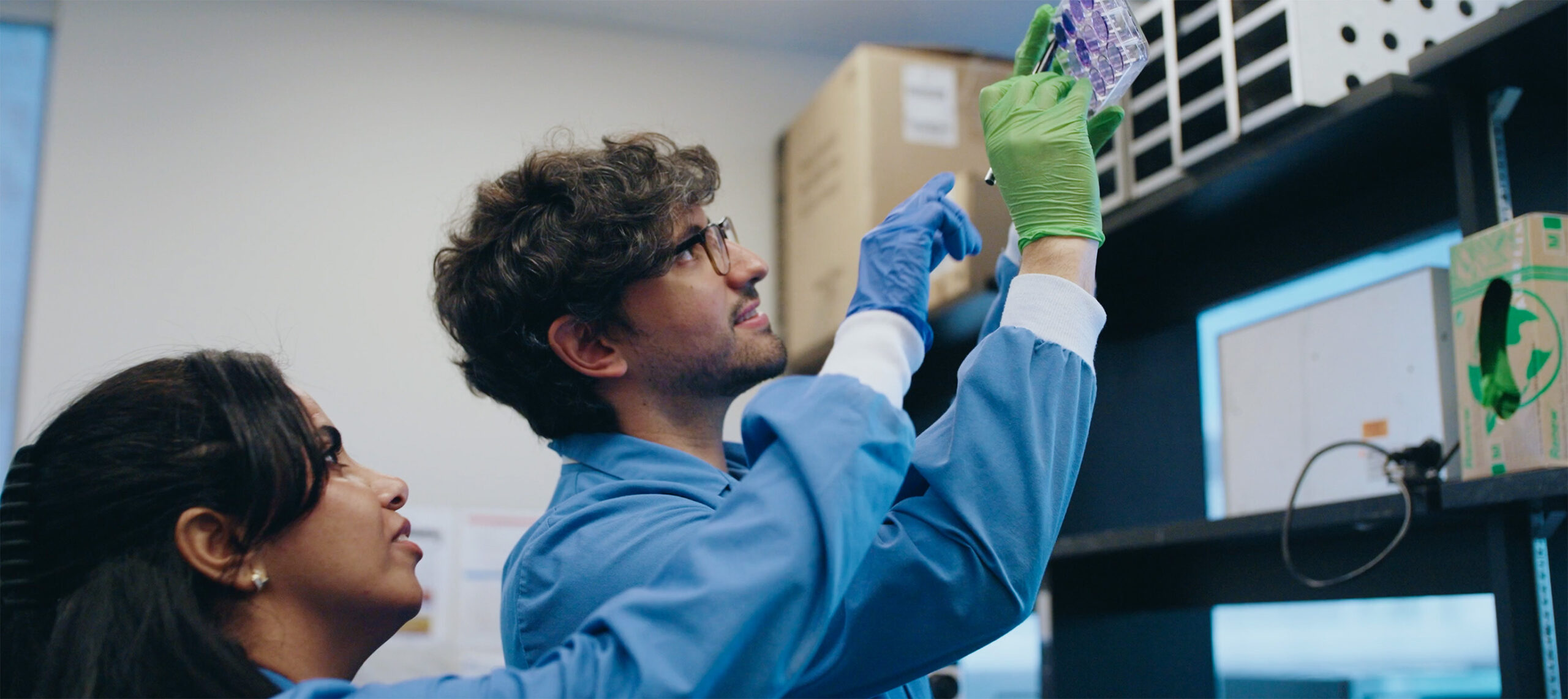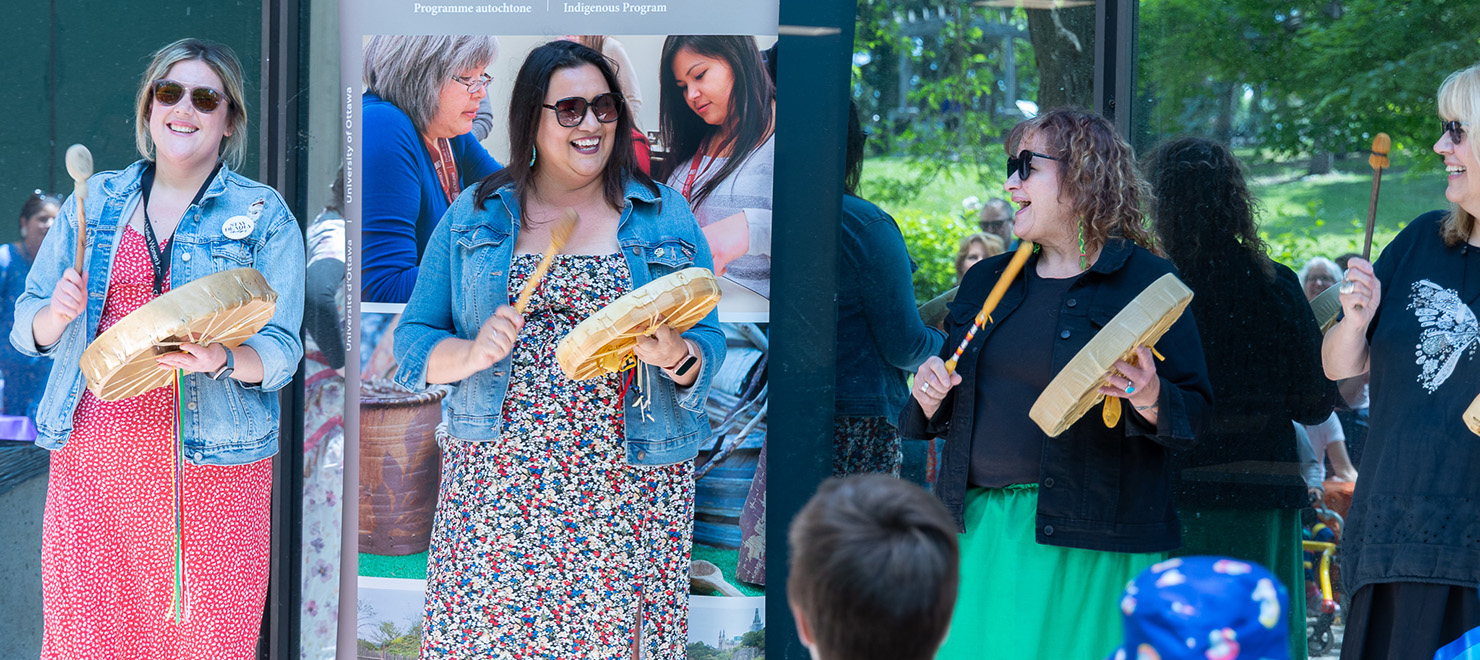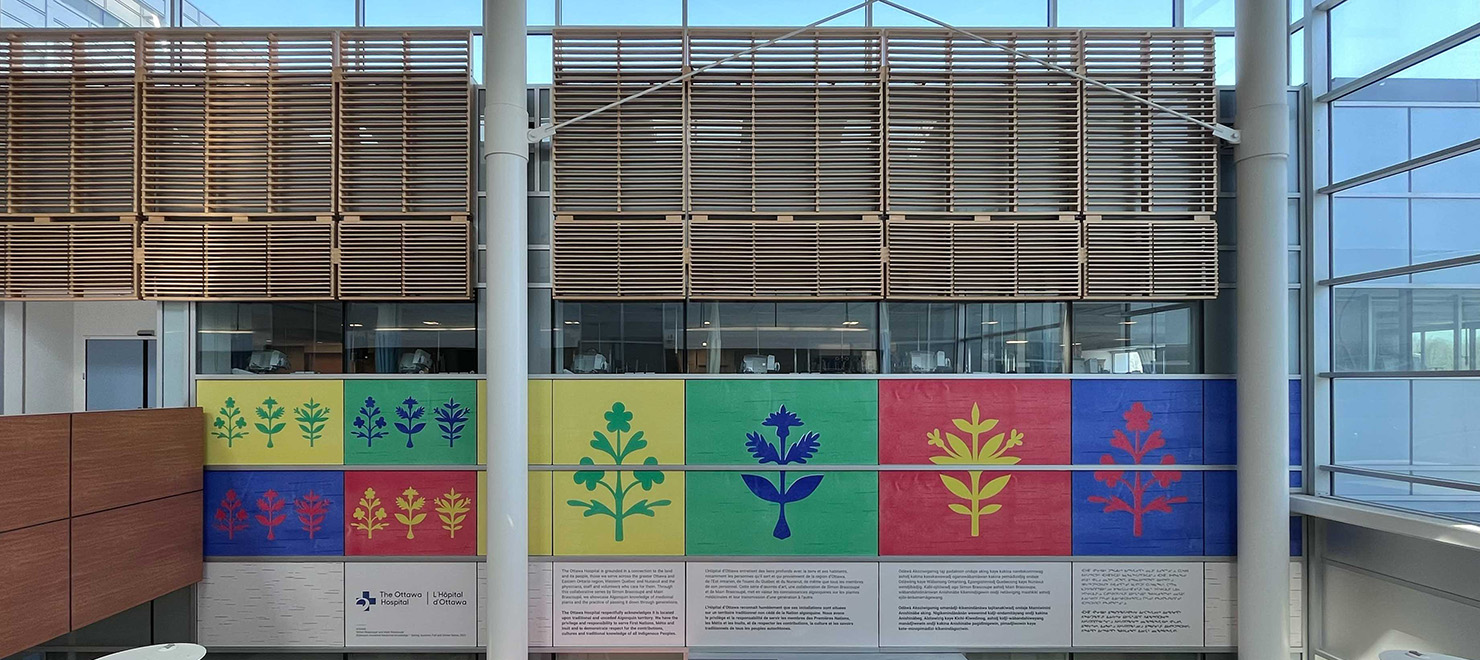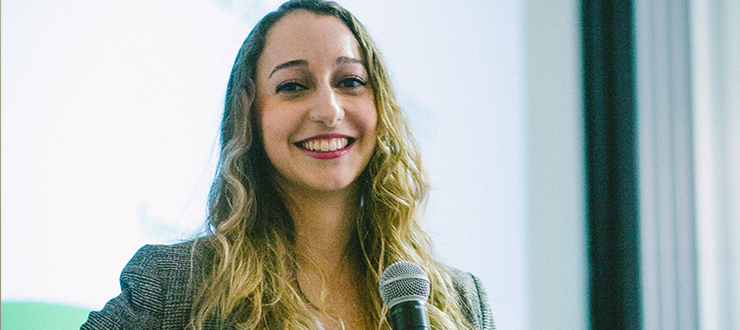
Stem cell researcher and PhD student Marissa Lithopoulos has volunteered with the Let’s Talk Science outreach program since 2014. The University of Ottawa chapter of this national program celebrates its 25th anniversary this year. Photo by Zhaoyi Chen.
Marissa Lithopoulos has always had a passion for science.
“My favourite show growing up was ‘Bill Nye the Science Guy.’ I knew I wanted to be just like him one day.”
Lithopoulos began delivering hands-on science activities in classrooms as part of the Let’s Talk Science outreach program in 2014 and has been hooked ever since.
“I started by visiting elementary schools and, to the kids, it’s like you’re a magician,” said the PhD student, who works at The Ottawa Hospital. “You’re making volcanoes and slime in the classroom, and the students are super-excited. They just look at you with a sparkle in their eye like, ‘Wow, you’re a scientist!’”
Lithopoulos is one of 254 active volunteers from the University of Ottawa chapter of Let’s Talk Science, which celebrates its 25th anniversary this month.
From volcanic eruptions, Lithopoulos moved into educating high school students about her own area of expertise: stem cells. She also collaborated with fellow PhD students and stem cell researchers Will Chen, Zhaoyi Chen and Tanya Foley to organize an annual symposium called StemCellTalks for high school students that focuses on stem cell biology, policy, and ethics. Cancer researchers Marie-Ève Wedge and David Cook also organize a similar symposium called Let’s Talk Cancer, in addition to arranging dozens of hands-on tours through The Ottawa Hospital’s cancer labs.
Begun at Western University, the now-national science outreach program was launched at the University of Ottawa in spring 1993 by Dr. Barbara Vanderhyden, a senior scientist at The Ottawa Hospital and distinguished professor at the university. She established the “Let’s Talk Science Outreach program” with the goal of helping students in the science, technology, engineering and mathematics fields improve their communication and teaching skills.
“Not only does the program teach kids about science from trusted university sources, but the hope is that they may appreciate the importance of science in their everyday lives – and it may even inspire them to enter the profession themselves,” said Dr. Vanderhyden.
Let’s Talk Science volunteers from Ottawa have won 24 national awards and recognition in the past decade, and the program itself has earned many national awards for it’s hands-on, interactive and in-person approach.
While stem cells hold a lot of promise, few proven treatments are currently available. Many fraudulent companies exploit the hype by selling treatments that aren’t based on scientific evidence.
“Many researchers, particularly in Canada, are doing amazing things with stem cells, but it’s important to acknowledge that there is some bad science out there in the world,” said Lithopoulos. “I think it’s our responsibility as stem cell experts to educate the public about what stem cells can and can’t do.”
In addition to having fun and learning leadership and event-planning skills, Lithopoulos finds her outreach work humbling. Sometimes students will ask thought-provoking questions that make her see her work in a different light.
“We want to convey to students that science is more about asking the right questions, rather than always having the right answers,” said Lithopoulos. “The goal is to get students to think, not to tell them what to think.”
Learn more about Let’s Talk Science.

Support patient care and research at
The Ottawa Hospital
You might also like…
Dr. John Bell and Stephen Beckta inducted into the Order of Canada
The Ottawa Hospital is proud to share that on December 31, 2025, two members of our team were inducted into the Order of Canada. Congratulations Dr. John Bell and Stephen Beckta.
Everyone at our hospital plays a role in research. Here’s how
It’s Research Week at The Ottawa Hospital. Check out this video to hear from some of the incredible people fuelling our discoveries that are having an impact around the world.
What to do in an emergency: New first aid video series on YouTube
Would you know what to do if you saw someone experience a stroke, heart attack or opioid overdose? We’ve launched a series of easy-to-follow videos on YouTube that walk you through how to respond to common first aid emergencies.
Celebrating the summer solstice and National Indigenous Peoples Day: A photo essay
The summer solstice has deep spiritual and cultural significance for Indigenous communities around the world. Last week, we joined CHEO and uOttawa for a special celebration to mark this important time of year, and to recognize the rich cultures of First Nation, Inuit and Métis Peoples.
Aging well: Guidance for older adults
In this special video series for both older adults and their loved ones, geriatric care specialists from The Ottawa Hospital offer guidance on navigating common health-care challenges that may arise with aging.
A guide to services at The Ottawa Hospital for Indigenous patients and families
At The Ottawa Hospital, we are committed to providing culturally safe care for First Nation, Inuit and Métis patients and families. We are working with Indigenous partners to identify ways we can make your time in hospital more welcoming. Here are some of the ways we’re doing that now.


 To reset, hold the Ctrl key, then press 0.
To reset, hold the Ctrl key, then press 0.
